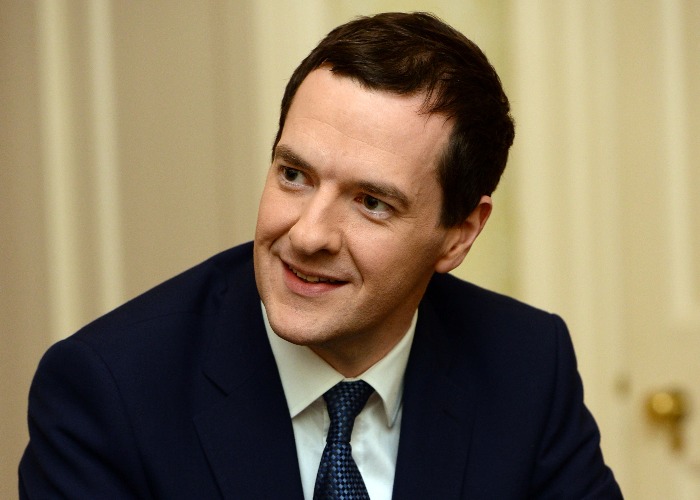EU Referendum 2016: Chancellor warns of tax increases and public spending cuts if we Brexit

George Osborne warns of tax rises and public spending cuts if we vote to leave the EU in next week's referendum.
Chancellor George Osborne has warned that he will have to cut public spending and increase taxes in an emergency Budget if we vote to leave the EU.
He claims there will be a £30 billion ‘black hole’ if we Brexit.
All credible economists say quitting EU would damage trade, investment, jobs, wages and tax receipts - meaning £bns less for public services
— George Osborne (@George_Osborne) June 15, 2016
George Osborne and Alistair Darling have compiled a list of £30 billion of tax rises and spending cuts including a 2p rise in the basic rate of Income Tax and a 3p rise in the higher rate. Meanwhile, spending on police, transport and local government could face a 5% cut.
They warn that the ring-fenced NHS budget could be “slashed”, along with education and defence. Alcohol and Fuel Duty would also need to rise by 5%.
He points out that the effects of Brexit are already being felt because a lot of businesses were already delaying decisions.
“Far from freeing up money to spend on public services as the Leave campaign would like you to believe, quitting the EU would mean less money. Billions less. It’s a lose-lose situation for British families and we shouldn’t risk it,” Osborne told BBC Radio 4’s Today programme.
The predictions are based on figures from the Institute of Fiscal Studies (IFS), with Osborne and Darling saying that there will be £15 billion of tax rises and £15 billion of cuts. A Brexit could also mean up two additional years of austerity measures, according to the IFS.
Get a loan with loveMONEY today: rates from 3.2%
Real wages going up. Record numbers in work. We've made so much progress since the crash. Leaving EU would be leap in the dark #StrongerIn
— George Osborne (@George_Osborne) June 15, 2016
Reactions
In response, 57 Tory MPs have claimed Osborne’s position would be ‘untenable’ if he tried to cut NHS, police and school spending.
Vote Leave has criticised the Remain camp’s "hysterical prophecies of doom", with Leave campaigning MPs saying they would vote against proposed tax rises. The Leave side insists that there will be more money to spend after Brexit when Britain no longer has to pay for EU membership.
The majority of experts agree with Osborne that a Brexit would harm public finances in the long run, though few believe that there would be an emergency Budget right away.
Jonathan Portes from the National Institute of Economic and Social Research said on Twitter: “In the short run tax increases or spending cuts would be the entirely wrong response to a Brexit shock.
“…Because short-run market reactions tell us very little about the long-run impact on public finances of Brexit; we’d have no idea how much poorer we’d be in the medium run, so no idea how much fiscal adjustment is actually required.”
Post-Brexit, an "emergency Budget" to raise taxes & cut spending would be precisely wrong response. My thoughts: pic.twitter.com/LiX8RSZOyD
— Jonathan Portes (@jdportes) June 15, 2016
Portes also said that, if a Brexit did provoke an economic shock, then the natural response will be to loosen fiscal policy rather than tighten it.
Get a loan with loveMONEY today: rates from 3.2%
Got a great personal finance story to share? Get in touch with our news desk and, if your story is published, we'll give you a £50 Amazon voucher!
More on the EU referendum:
Brexit barometer- cast your vote on all of the key issues
The £13 BILLION question: where could we spend EU cash if we Brexit?
Comments
Be the first to comment
Do you want to comment on this article? You need to be signed in for this feature